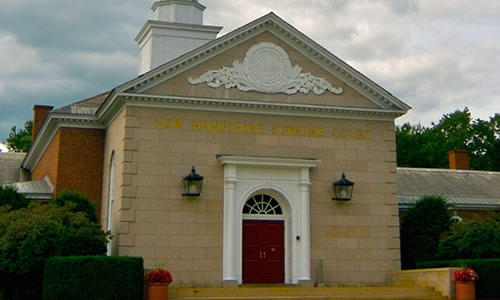By GARRY RAYNO, InDepthNH.org
CONCORD — The plaintiffs in the ConVal School District education suit on appeal to the state Supreme Court want the court to remove an amicus brief filed by the Speaker of the House and 30 other Republican lawmakers from the record.
Attorneys for ConVal and 17 other school districts claim the brief is “both irrelevant to the issues on appeal and inaccurate – factually and legally.”
The amicus brief filed by Franconia attorney and former Representative Gregory Sorg for the 31 GOP lawmakers claims the Supreme Court failed to consider how two constitutional articles determine who is responsible for providing education to the state’s children and the oversight of the system and asked the court to overturn the two original Claremont education decisions that the state has an obligation to provide an adequate education for its child and to pay for it.
In the Claremont II decision the court said the state had to pay for the adequate education with revenues that met the constitutional requirement of proportional and reasonable taxation and not with local property taxes with widely varying rates.
In its motion to strike the amicus brief from the record, the two attorneys, Michael J. Tierney and Elizabeth E. Ewing, from Wadleigh, Starr & Peters, P.L.L.C., claim the brief was filed “without leave of the Court, without consent of the parties, and after the deadline for the State’s brief (the party that the Memorandum purports to support).”
They are all violations of court rules and should be stricken, the attorneys write.
They also note the arguments in the brief are irrelevant to the appeal because that is not the issues on appeal.
“The State and the Districts agree now, as they did in 2020: the Claremont and Londonderry precedents are good law and controlling. . . . Thus, the arguments contained within the Memorandum are those of certain individuals, not the Legislature as a body.”
The attorneys also take issue with Sorg’s contention the original Claremont decisions were in error and should be overturned saying the decisions were correct based on the language in the Constitution and in the historical context when it was adopted.
They note that for more than a century before the Claremont decision, the court had held that the article imposed a substantial duty on the state to provide an education to its children.
The attorneys argue Sorg’s brief had only one argument in rebuttal to the court’s decision and that it would have been different if it had addressed the original language in the 1784 wording of Part I, Article 6 interpreting Part II, Article 83.
“But that theory is contradicted by the plain language of Part I, Article 6, both now and in 1784 and the wording had been repealed and not part of the constitution.
The attorney’s also note the brief also cites wording that applied to towns paying for their own religious ministers, not public school teachers.
In his brief Sorg argues Article 83 merely “authorized the Legislature to compel every locality to provide (an education), at their expense.”
“This did not mean that the Legislature couldn’t contribute to the funding public schools under any circumstances, but merely that any proposed state funding would constitute an offer – and with it, inevitably, state control – that localities were not obliged to accept,” Sorg says in the brief.
The attorneys ask the court to strike the amicus brief, and rule “there’s no claim (in this case) that Claremont I or Claremont II or any of its progeny were wrongly decided and should be reversed.’
The Attorney General raised the issue of the Supreme Court reviewing its earlier decision in its appeal of the ConVal and Rand decisions by Superior Court Judge David Ruoff determining the state’s method of collecting the Statewide Education Property Tax was unconstitutional and the state was “woefully underfunding” its obligation to provide an adequate education to its children and setting a per-pupil adequacy rate at $7,356, which would increase state spending on an adequate education by more than $500 million annually. Both decisions were stayed by the Supreme Court until it rules on the appeals.
The Attorney General also argued setting the per-pupil rate was an egregious violation of the separation-of-powers doctrine.
But school funding reform advocates say following both the Republican lawmakers and the Attorney General’s suggestions would destroy the ability for school districts, students, and parents to hold elected state officials accountable for underfunding public schools.
Although Ruoff’s decisions were issued last November, the Legislature during the 2024 session failed to pass several pieces of legislation that would have had the state comply with the decisions, and instead put off action until the appeals are decided which could take a year or more.
The plaintiffs in the ConVal and Rand cases are expected to soon file briefs in response to the state and the Coalition Communities II filings laying out their arguments for appealing the decisions.
The original Claremont decision was issued in 1993 and the Claremont II decision was issued in 1997, and the state has yet to comply with either order and instead has attempted to pass constitutional amendments to remove the courts from the governmental process and made changes to the funding system that relied more heavily on property taxes than the system at the time and directed some or the resources from existing taxes to funding education.
The Rand case is scheduled to resume later this month in Rockingham County Superior Court to determine the remainder of the case.
The issue of the constitutionality of the state’s administration of the Statewide Education Property Tax was separated and Ruoff ruled the current system is unconstitutional as it creates property tax rates that effectively vary from town to town.
Garry Rayno may be reached at garry.rayno@yahoo.com.





